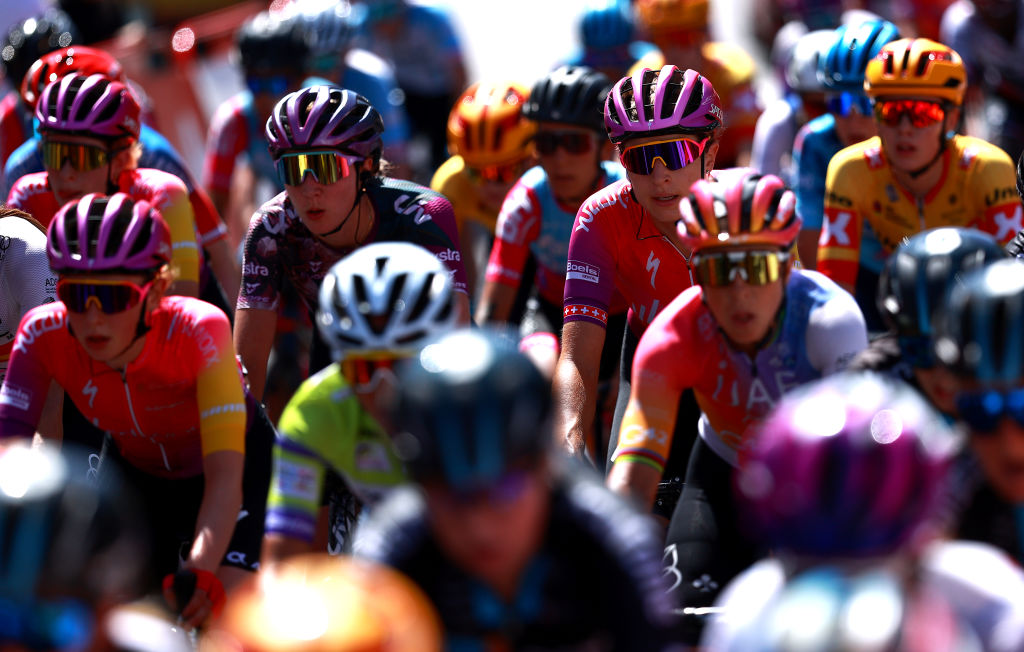The Cyclists’ Alliance, the trade association that represents the interests of female cyclists, revealed in its annual survey (opens in new tab) that only 15% of female professional cyclists receive an income of over €20,000 outside of the Women’s WorldTour (WWT) and almost half of the peloton – 46% – rely on supplemental income from second jobs, family support or scholarships.
“Barely half the female professional peloton can rely on cycling as their sole source of income,” TCA wrote about the survey’s findings.
There were even some cyclists in this year’s Tour de France Femmes who received no salary but were racing against riders on WorldTour teams who earn six-figure salaries.
By contrast, 13% of WWT riders said they earned more than €100,000 per year – an increase of 11% compared to last year – and another 24% said that they earned between €60,000- €100,000 – a 17% increase.
The survey included 31 questions that covered employment and income, team support and culture, work and education, professional support, team culture, and membership of the TCA.
124 female professional cyclists completed the survey; 121 compete on the road, 22 track, 13 cyclo-cross, 8 in both mountain bike and e-sport, and 1 BMX. In addition, 44% of the respondents are from the Women’s WorldTour teams.
The survey’s findings are indicative of an increasing wage gap emerging in women’s cycling between the Continental tier and WorldTour level, a disparity the TCA urges the UCI to consider particularly since “financial reasons remains the main reason for leaving the sport of professional cycling earlier than planned for female cyclists.”
In 2021, the UCI mandated that WorldTour teams must increase their minimum salary from €15,000 in 2020, rising to €32,100 in 2023, but currently have no equivalent system for Continental teams.
As well as investigating riders’ salaries, the survey gathered information about contract lengths, revealing that the number of one-year employment contracts went down by 30% year-on-year while 81% of WWT riders use agents to secure contracts, compared to 24% of Continental riders.
Despite these issues, 73% of the riders surveyed reported being very happy or happy, a 30% increase since 2021. They attributed this rise to the increasing professionalism of teams through rider-focused initiatives such as professional training camps with altitude training, media training, race analysis and tactical skill development as well as specialist staff hires…
Click Here to Read the Full Original Article at CyclingNews RSS Feed…

